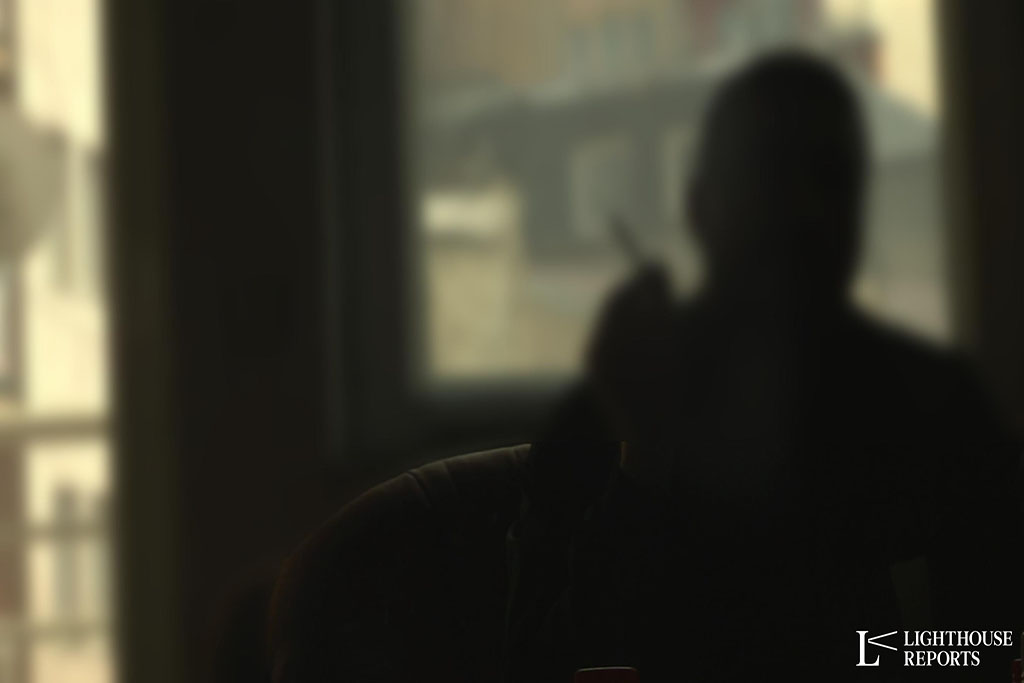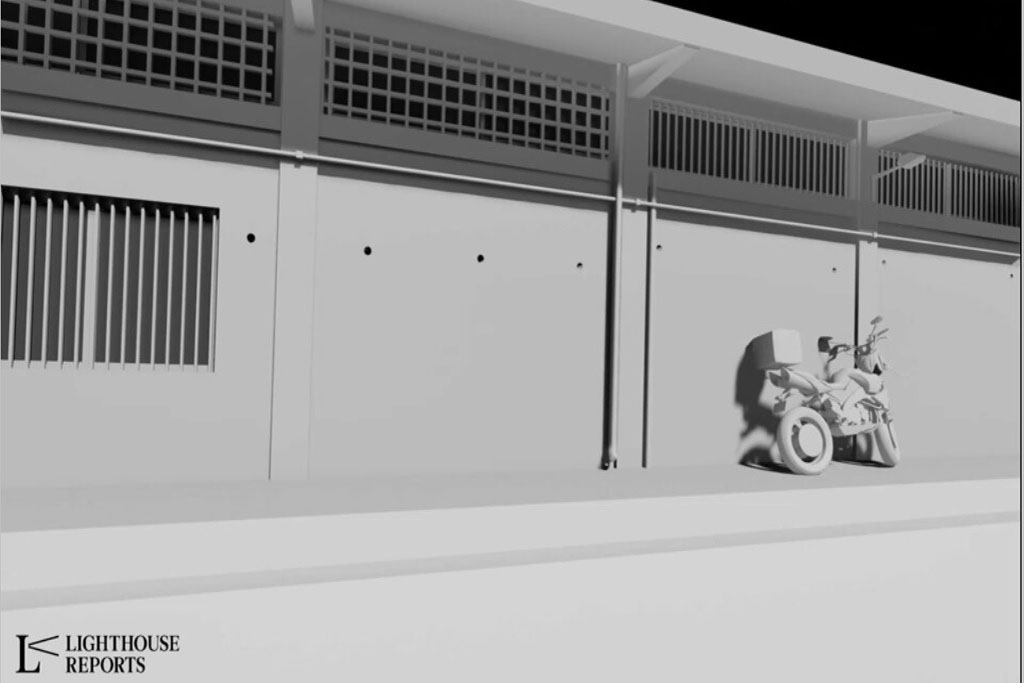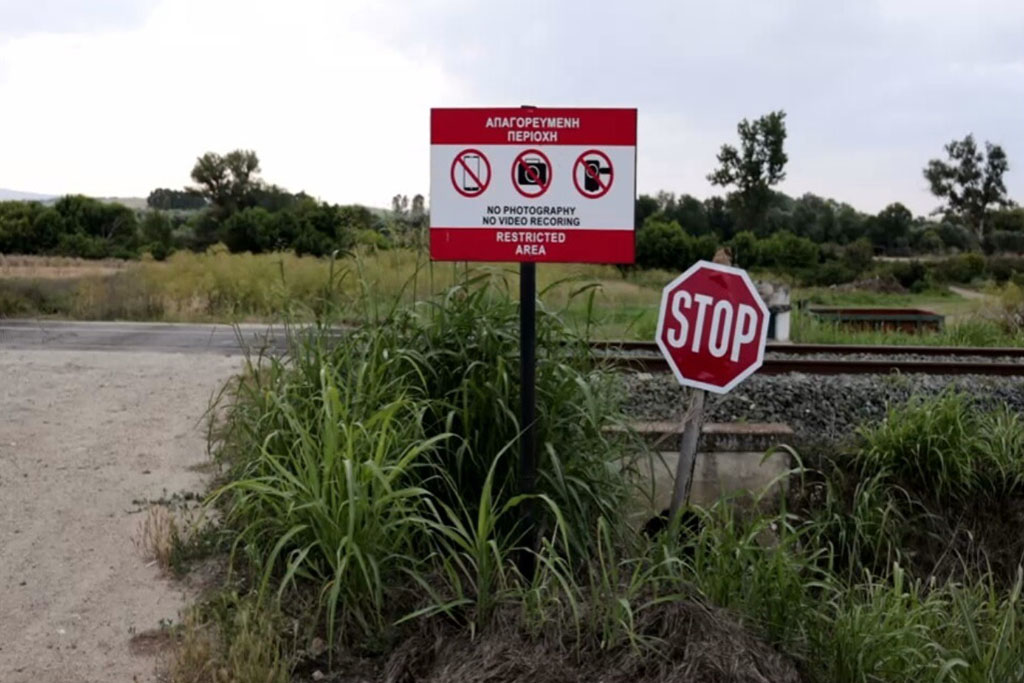“We were slaves”
Greece uses asylum seekers to forcibly return migrants to Turkey
People who cross the river Evros from Turkey to Greece to seek international protection are arrested by Greek police every day. They are often beaten, robbed and detained in police stations before illegally being sent back across the river.
The asylum seekers are moved from the detention sites towards the river bank in police trucks where they are forced onto rubber boats by men wearing balaclavas, with Greek police looking on. Then these masked men transport them back to the other side.
In recent years there have been numerous accounts from the victims, as well as reports by human rights organisations and the media, stating that the men driving these boats speak Arabic or Farsi, indicating they are not from Greece. A months-long joint investigation with The Guardian, Le Monde, Der Spiegel and ARD Report München has for the first time identified six of these men – who call themselves slaves– interviewed them and located the police stations where they were held. Some of the slaves, who are kept locked up between operations, were forcibly recruited themselves after crossing the border but others were lured there by smugglers working with a gangmaster who is hosted in a container located in the carpark of a Greek police station. In return for their “work” they received papers allowing them to stay in Greece for 25 days.
The slaves said they worked alongside regular police units to strip, rob and assault refugees and migrants who crossed the Evros river into Greece — they then acted as boatmen to ferry them back to the Turkish side of the river against their will. Between operations the slaves are held in at least three different police stations in the heavily militarised Evros region.
METHODS
The six men we interviewed weren’t allowed to have their phones with them during the pushback operations. But some of them managed to take some pictures from inside the police station in Tychero and others took photos of the Syrian gangmaster working with the police. These visuals helped us to corroborate the stories the former slaves told us.
Videos and photographs from police stations in the heavily militarised zone between Greece and Turkey are rare. One slave we interviewed provided us with selfies allegedly taken from inside the police station of Tychero, close to the river Evros, but difficult to match directly to the station because of the lack of other visuals. We collected all visual material of the station that was available via open sources, and from our team, and we used it to reconstruct the building in a 3D model which made it possible to place the slave’s selfies at the precise location in the building. The 3D-model also tells us that the place where the slaves were kept outside their “working” hours is separate from the prison cells where the Greek police detain asylum seekers before they force them back to Turkey.
We also obtained photos of a Syrian man in military fatigues in front of a container. This man calls himself Mike. According to three of the six sources, they worked under Mike’s command and he in turn was working with the Greek police. We were able to find the location of the container that serves as home for Mike and the slaves. It is in the parking lot of the police station in Neo Cheimonio in the Evros region.
We also obtained the papers that the sources received after three months of working with the Greek police and were able to verify their names in the Greek police system. All their testimonies were confirmed by local residents in the Evros region.
STORYLINES
Bassel was already half naked, bruised and beaten when he was confronted with an appalling choice. Either he would agree to work for his captors, the Greek police, or he would be charged with human smuggling and go to prison.
Earlier that night Bassel, a Syrian man in his twenties, had crossed the Evros river from Turkey into Greece hoping to claim asylum. But his group was met in the forests by Greek police and detained. Then Bassel was pulled out of a cell in the small town of Tychero and threatened with smuggling charges for speaking English. His only way out, they told him, was to do the Greeks’ dirty work for them. He would be kept locked up during the day and released at night to push back his own compatriots and other desperate asylum seekers. In return he would be given a travel permit that would enable him to escape Greece for Western Europe. Read the full story in Der Spiegel
Bassel’s story matched with three other testimonies from asylum seekers who were held in a police station in Neo Cheimonio. All had paid up to €5,000 euros to a middleman in Istanbul to cross from Turkey to Greece with the help of a smuggler, who said there would be a Syrian man waiting for them with Greek police.
Farhad, in his thirties and from Syria along with two others held at the station, said they too were regularly threatened by a Syrian man whom they knew as “Mike”. “Mike” was working at the Neo Cheimonio station, where he was being used by police as a gangmaster to recruit and coordinate groups of asylum seekers to assist illegal pushbacks, write The Guardian and ARD Report Munchen.
Residents of Greek villages near the border also report that it is “an open secret” in the region that fugitives carry out pushbacks on behalf of the police. Farmers and fishermen who are allowed to enter the restricted area on the Evros have repeatedly observed refugees doing their work. Migrants are not seen on this stretch of the Evros, a local resident told Le Monde, “Except for those who work for the police.”
To keep up to date with Lighthouse investigations sign up for our monthly newsletter
The Impact
Our investigations don’t end when we publish a story with media partners. Reaching big public audiences is an important step but these investigations have an after life which we both track and take part in. Our work can lead to swift results from court cases to resignations, it can also have a slow-burn impact from public campaigns to political debates or community actions. Where appropriate we want to be part of the conversations that investigative journalism contributes to and to make a difference on the topics we cover. Check back here in the coming months for an update on how this work is having an impact.




